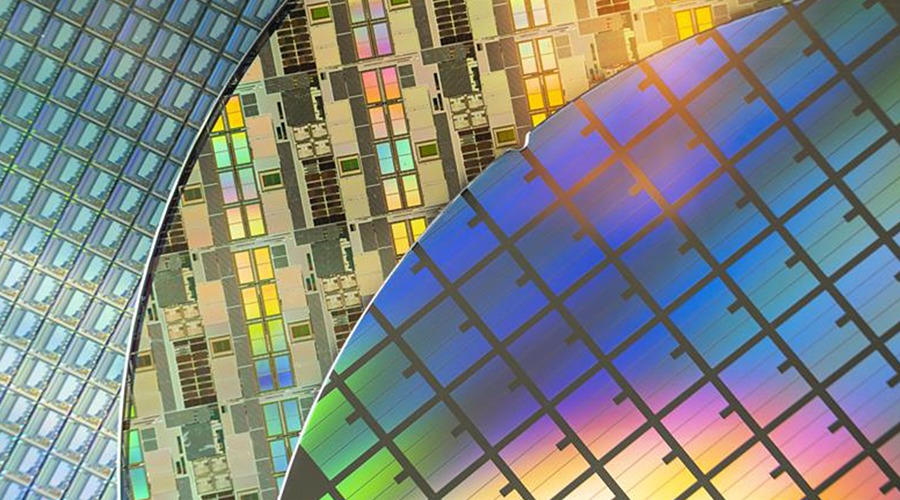
PLANO, TX, Apr 28, 2025 – Siemens Digital Industries Software has expanded its collaboration with TSMC to support semiconductor design and integration. As part of this work, Siemens’ Calibre nmPlatform suite – including nmDRC, nmLVS, Calibre YieldEnhancer, and PERC tools – along with its Analog FastSPICE (AFS) and Solido solutions, has been certified for TSMC’s N2P and A16 process technologies. In addition, Siemens’ Calibre 3DSTACK solution is certified for use with TSMC’s 3DFabric technologies and the 3Dblox standard, helping to improve silicon stacking and advanced packaging design. This collaboration strengthens design enablement for next-generation semiconductor nodes and 3D IC integration, addressing key challenges in advanced chip manufacturing.
Siemens and TSMC are advancing tool certifications for TSMC’s N3C technology, building on the N3P design solutions. They have started collaborating on design enablement for TSMC’s A14 technology to support next-generation designs.
The Siemens and TSMC partnership advance system and semiconductor design for AI, automotive, hyperscale, mobile and other key applications, due in part to the following technology achievements:
- Siemens’ Calibre nmPlatform software is certified for TSMC’s advanced processes. Calibre DRC, Calibre LVS, Calibre PERC, and Calibre YieldEnhancer software with SmartFill technology are certified for TSMC’s N2P and A16 processes. This certification allows customers continue using signoff technology. Siemens’ Calibre xACT software is also certified for the latest version of TSMC’s N2P process.
- As the 3Dblox technology transitions to becoming an IEEE standard, Siemens and TSMC collaborated to certify Siemens’ Calibre 3DSTACK solution for compatibility with 3Dblox and TSMC’s 3DFabric technologies. This certification builds on their collaboration in thermal analysis for TSMC’s 3DFabric silicon stacking and packaging technologies. Siemens’ Innovator3D IC solution supports the 3Dblox language format across different abstraction levels.
- Siemens’ Analog FastSPICE (AFS) software has been certified for TSMC’s N2P and A16 processes. Siemens and TSMC have provided solutions for analog, mixed-signal, RF, and memory designs. As part of the custom design reference flow (CDRF) for TSMC’s N2 process, Siemens’ AFS tool supports TSMC’s Reliability Aware Simulation technology. This technology addresses IC aging, real-time self-heating effects, and other reliability features. The CDRF for TSMC’s N2P technology includes Siemens’ Solido design environment software for variation-aware verification.
- Siemens worked with TSMC using its Calibre 3DStack and AFS technologies to create design solutions for TSMC’s Compact Universal Photonic Engines (COUPE) platform. This effort combined Siemens’ expertise with TSMC’s process technologies.
- Siemens is in the process of certification for its Aprisa and mPower software on TSMC’s N2P process. This will support physical implementation and electromigration/IR-drop analysis for both analog and digital designs.
Siemens EDA and TSMC have certified seven sign-off production flows on the cloud. These include Siemens’ Solido SPICE, Analog FastSPICE, Calibre nmDRC, Calibre YieldEnhancer with SmartFill technology, Calibre nmLVS, Calibre PERC, Calibre xACT, and the mPower power integrity analysis flow tools. Each is tested and validated for accurate, secure operation on AWS Cloud.
“As we continue to pioneer new solutions and redefine the possibilities within the semiconductor industry, our strategic alliance with TSMC remains a cornerstone of our strategy,” stated Mike Ellow, CEO, Siemens EDA, Siemens Digital Industries Software. “These advances not only enhance our portfolio but also empower our mutual customers to meet the challenges of tomorrow.”
“By strengthening our partnership with Siemens, TSMC is empowering customer innovation by combining the excellence of Siemens’ proven design solutions with the performance and power-efficiency advantages of TSMC’s cutting-edge technologies,” said Lipen Yuan, senior director of advanced technology business development at TSMC. “Our collaboration with Open Innovation Platform (OIP) ecosystem partners like Siemens is instrumental in pushing the boundaries of what’s possible in semiconductor technology moving forward.”
Source: Siemens
About Siemens Digital Industries Software

Siemens Digital Industries (DI), a division of Siemens AG, is a leader in industrial automation and digitalization. Headquartered in Nuremberg, Germany, DI offers a comprehensive portfolio of software, automation technologies, and digital services designed to optimize the entire product lifecycle – from design and production to operations and maintenance. Established as part of Siemens’ broader industrial operations over 60 years ago, Siemens DI serves various industries, including automotive, aerospace, pharmaceuticals, energy, and electronics. The company is known for its flagship platforms, like Xcelerator and SIMATIC, which enable businesses to drive innovation, efficiency, and sustainability through digital transformation. Siemens DI employs thousands of professionals worldwide and generates an estimated annual revenue of over €18 billion. Its robust ecosystem supports manufacturers in navigating Industry 4.0, providing tools that combine virtual and real-world data to create innovative, flexible, and scalable industrial systems.
About TSMC

Taiwan Semiconductor Manufacturing Company (TSMC) is the world’s largest dedicated semiconductor foundry, based in Hsinchu, Taiwan. Founded in 1987, TSMC developed the pure-play foundry business model and has become a key player in the global chip supply chain. The company manufactures advanced semiconductor components using process technologies like 5nm and 3nm nodes, with plans to move to 2nm and smaller. TSMC serves customers across industries like consumer electronics, computing, automotive, networking, and industrial applications. Major technology firms rely on TSMC to produce chips for smartphones, data centers, AI systems, and autonomous vehicles. In 2024, the company reported annual revenue of approx. US$88 billion. By the end of 2024, TSMC employed about 84,000 people worldwide. The company served 530 customers and made 11,900 products for various applications. With ongoing investments in new technologies, TSMC remains an integral part of the semiconductor industry.
